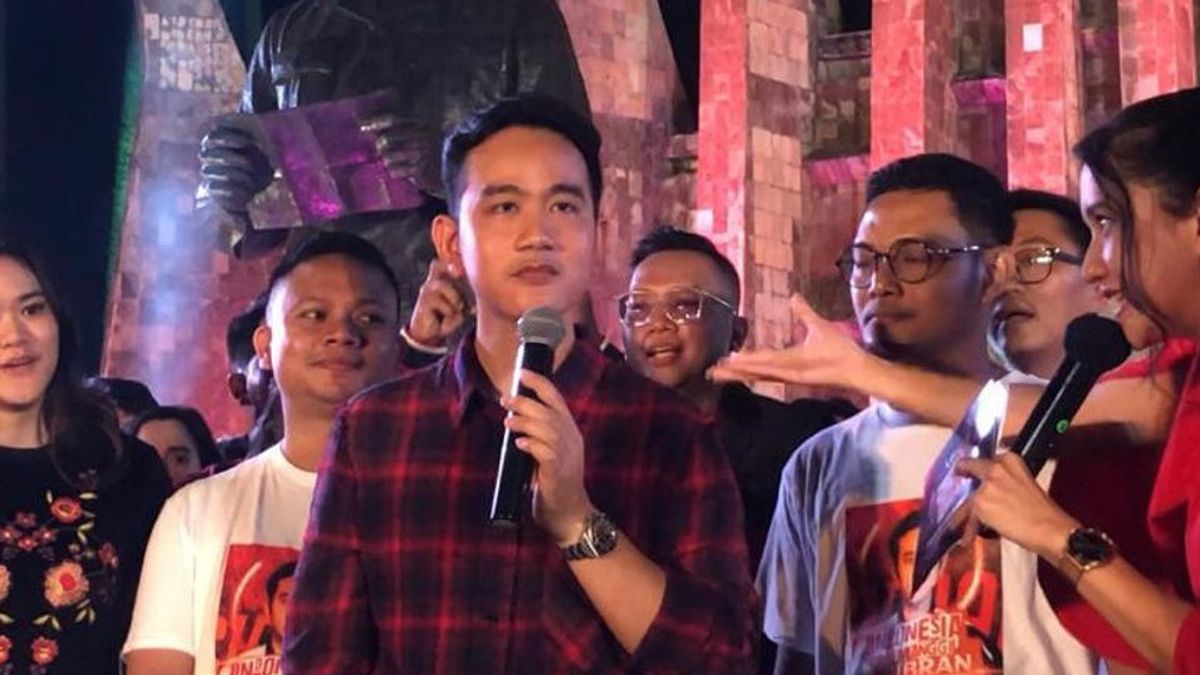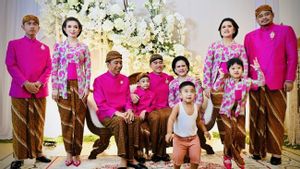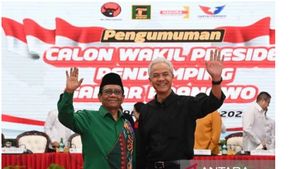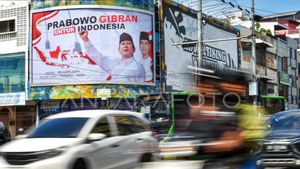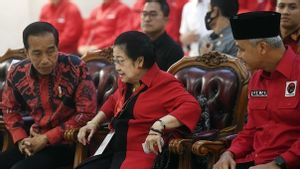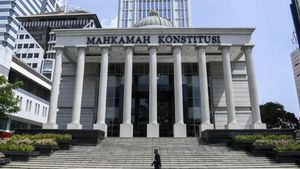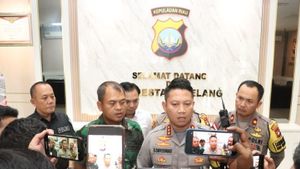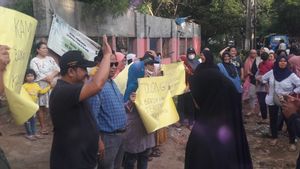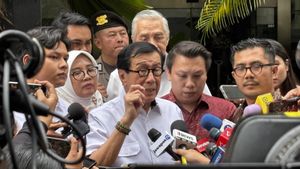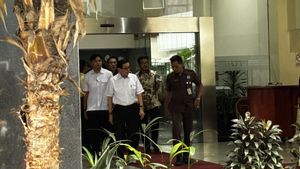JAKARTA - The Constitutional Court's (MK) decision regarding the age limit for presidential candidates (candidates) and vice presidential candidates (Cawapres) became the center of attention of Indonesian citizens throughout last week.
The Constitutional Court granted the case lawsuit number 90/PUU-XXI/2023 submitted by Surakarta University (Unsa) student Almas Traqibbirru Re A. In his lawsuit, Almas asked the Constitutional Court to add a phrase "experiencing as a regional head".
The Constitutional Court also granted the lawsuit on Monday, October 16. Thus, the Constitutional Court stated that Article 169 letter (q) of the Election Law reads:
Hundreds of Solo City residents on behalf of the Archipelago Cultural Preservation Community carried out a silent protest at the Solo Mayor's official residence, Loji Gandrung, Solo, Monday (16/10/2023). (Special)
The requirements to become a presidential candidate and a vice presidential candidate are: a minimum age of 40 years or a position that is elected through general elections, including regional head elections.
The Constitutional Court's decision was then considered to facilitate Gibran Rakabuming Raka, 36, to run as a candidate for vice president Prabowo Subianto in the 2024 Presidential Election (Pilpres).
The youngest son of President Joko Widodo is currently carrying out his role as Mayor of Surakarta, the position he has held in the last two years.
After reading the billiards, the Constitutional Court was the target of criticism on social media. The Constitutional Court's abbreviation was made into a Family Court, because it was considered to have participated in perpetuating dynastic political accusations.
In addition, the hashtag #KamiMuak also echoed on social media world X, formerly Twitter. Netray observed netizen echoes and impressions related to hashtags allegedly as a form of protest during the period 13-17 October 2023 with the word "keyamimuak".
Of the 14.5 thousand netizens' tweets using this hashtag, seven thousand of them were found to be negative. The comparison of this significant number shows that the Constitutional Court's decision is dominant in receiving negative responses from netizens. The impression of using this hashtag reached 7.9 million with the potential to reach 20.9 million X social media user accounts.
The hashtag #KamiMuak was first voiced by the @DennySiregar account on October 14, 2023 or two days before Pututsan MK. This hashtag responds to the discussion about Gibran's potential for candidacy to accompany Prabowo is something that is not in the logic of the PAN cadre. This is because Gibran is a PDIP cadre who is not a coalition of the Gerindra Party.
The use of hashtags increased significantly on October 16 or on the day of determining the Constitutional Court's decision on the age limit for presidential and vice-presidential candidates as many as 6.2 thousand tweets. At its peak, it occurred on October 17 as many as 8.1 thousand tweets.
The Constitutional Court's decision was heavily criticized by observers, including Pangi Syarwi Chaniago, Executive Director of the Voxpol Center Research & Consulting. Pangi said the Constitutional Court had issued a decision that changed and rocked the political dynamics of Indonesia.
"Political dynasties, which refer to the practice of transmitting political power to family members or descendants of officials who have occupied previous political positions, are critical issues that affect the future of Indonesian democracy," Pangi said in his statement.
The practice of dynastic politics has become a bad habit for politicians who are a serious threat to the decline in the quality of democracy itself. This is in line with the public perceptions illustrated in the Voxpol center survey where the majority of respondents (69.3%) disagreed with the existence of dynastic political practices while the other majority (67.9%) believed that this kind of practice could damage the quality of democracy. In fact, as many as 74.8% of respondents supported regulations that limited dynastic political practices.
According to Pangi, the Constitutional Court's decision seemed to ignore the nuances of public neutrality and was more concerned with the desire for power that would drag the Constitutional Court into the vortex of internal destructive politics and democracy in Indonesia as a whole.
One of the most striking aspects of the Constitutional Court's decision is inequality in democracy. When a president's son advances in the general election, there is the potential for abuse of power or abuse of power, Pangi explained.
Mainly because the president is still in power and is in full control until the D day of voting. This threatens the basic principle of democracy that must be upheld, namely equality in democracy," he concluded.
VOIR éGALEMENT:
The English, Chinese, Japanese, Arabic, and French versions are automatically generated by the AI. So there may still be inaccuracies in translating, please always see Indonesian as our main language. (system supported by DigitalSiber.id)
